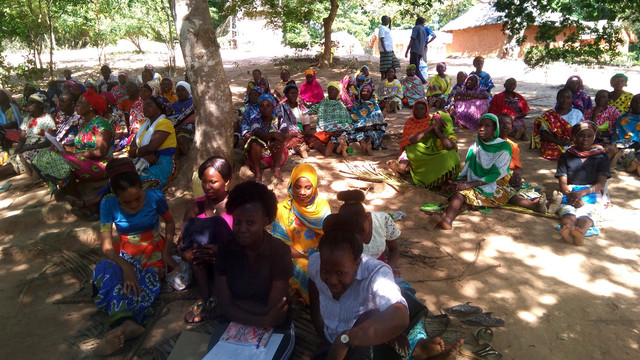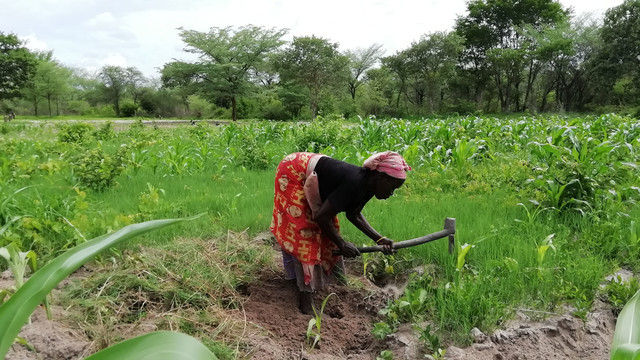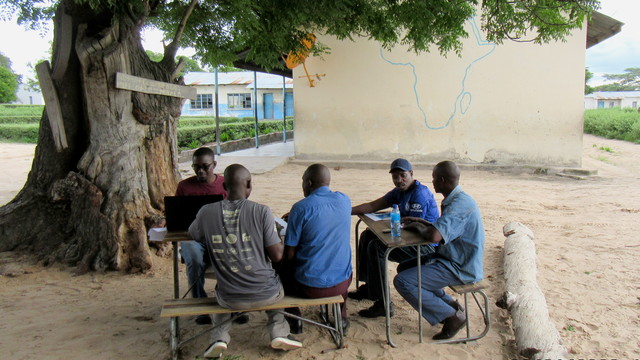Assessing the social impacts, governance and equity of conservation: SAPA, GAPA or SAGE?
IIED has developed three practical and relatively low-cost tools for stakeholders and rights-holders of a protected or conserved area to assess their social impact, the quality of governance and the equity of conservation.
Watch a short film on the SAGE workshop conducted at Randilen Wildlife Management Area, Tanzania in November 2019 (Credit: Honeyguide)
The importance of governance and the need to improve social impacts of conservation were highlighted at the IUCN World Parks Congress in 2003 and elaborated on in the Convention of Biological Diversity (CBD) Programme of Work on Protected Areas in 2004.
More recently, Aichi Target 11 of the CBD Strategic Plan 2011-20 states that protected areas should be equitably managed. Since then, a lot has been done to elaborate key aspects of governance in the context of conservation and provide guidance for governance assessments, notably by the International Union for Conservation of Nature (IUCN) and its commissions.
Building on this work, IIED has led the development and testing of three practical and relatively low-cost tools for stakeholders and rightsholders of a protected or conserved area (PCA) to assess the social impacts (the impacts on wellbeing of people living in or around a PCA); quality of governance (the performance of a PCA in relation to principles of equitable governance); and equity of conservation and associated development activities.
The equity of PCA conservation is its performance in terms of respect for actors and their rights, participation, transparency, accountability, dispute resolution and how costs and benefits are distributed (in other words, largely a matter of governance).
The three tools are:
- Social assessment for protected and conserved areas (SAPA): this focuses on the impacts of PCAs on the wellbeing of local people, plus a basic governance assessment. SAPA can be used with almost any type of PCA.
- Governance assessment for protected and conserved areas (GAPA): this focuses on governance challenges and underlying causes but only for PCAs where actors are willing to explore sensitive governance issues, and
- Site-level assessment of governance and equity (SAGE): this focuses on governance and equity. SAGE is less deep than GAPA but covers a broader scope of issues and costs less. SAGE can be used with any type of PCA either as a standalone exercise or in conjunction with SAPA or Protected Area Management Effectiveness Tracking Tool (PA-METT).
SAPA, SAGE or GAPA – which tool is best suited to your needs?
This decision tree will help you decide which tool best suits your context and needs. Further detail is provided in this leaflet.
A decision tree to assess which tool best suits your context and needs. Click on this image to enlarge it (Image: IIED)
Having determined which tool is most suitable, we recommend reading the feasibility criteria provided in the SAPA and GAPA manuals which check that the site has, or is able to create, the enabling conditions needed for good results.
SAPA, SAGE and GAPA all use a framework of 10 principles, as listed below:
| Equity: recognition | 1. Recognition and respect for the rights of all relevant actors |
| 2. Recognition and respect of all relevant actors and their knowledge | |
| Equity: procedure | 3. Full and effective participation of all relevant actors in decision making |
| 4. Transparency, information sharing and accountability for actions and inactions | |
| 5. Access to justice, including effective dispute resolution processes | |
| 6. Effective and fair law enforcement | |
| Equity: distribution | 7. Effective measures to mitigate negative impacts on communities |
| 8. Benefits equitably shared among relevant actors | |
| Other | 9. Achievement of conservation and other objectives |
| 10. Effective coordination and collaboration between actors, sectors and levels |
Additional resources
SAPA, SAGE or GAPA? Tools for assessing the social impacts, governance, and equity of conservation, Phil Franks, Ruth Pinto (2020), Project material | en français
Contact
Ruth Pinto (ruth.pinto@iied.org), research consultant, Natural Resources research group




